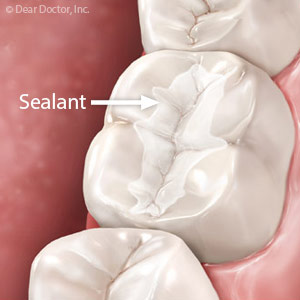

The ongoing opioid addiction epidemic has brought together government, law enforcement and healthcare to find solutions. The focus among doctors and dentists has been on finding ways to reduce the number of opioid prescriptions.
Opioids (or narcotics) have been a prominent part of pain management in healthcare for decades. Drugs like morphine, oxycodone or fentanyl can relieve moderate to extreme pain and make recovery after illness or procedures much easier. Providers like doctors and dentists have relied heavily on them, writing nearly 260 million narcotic prescriptions a year as late as 2012.
But although effective when used properly, narcotics are also addictive. While the bulk of overall drug addiction stems from illegal narcotics like heroin, prescription drugs also account for much of the problem: In 2015, for example, 2 million Americans had an addiction that began with an opioid prescription.
The current crisis has led to horrific consequences as annual overdose deaths now surpass the peak year of highway accident deaths (just over 54,000 in 1972). This has led to a concerted effort by doctors and dentists to develop other approaches to pain management without narcotics.
One that’s gained recent momentum in dentistry involves the use of non-steroidal anti-inflammatory drugs (NSAIDs). NSAIDs like acetaminophen, ibuprofen or aspirin work by dilating blood vessels, which reduces painful inflammation. They’re available over the counter, although stronger doses require a prescription.
NSAIDs are effective for mild to moderate pain, but without the addictive properties of narcotics. There are some adverse health consequences if taken long-term, but limited use for pain or during post-procedure recovery is safe.
Many dentists are recommending NSAIDs for first-line pain management after most dental procedures. Narcotics may still be prescribed, but in a limited and controlled fashion. As part of this new approach, dentists typically combine ibuprofen and acetaminophen: Studies have shown the two work together better at reducing pain than either one individually.
Still, many aren’t eager to move away from the proven effectiveness of narcotics to primarily NSAIDs. But as these non-addictive drugs continue to prove their effectiveness, there’s hope the use of addictive opioids will continue to decrease.
If you would like more information on pain management practices in dental care, please contact us or schedule an appointment for a consultation.









